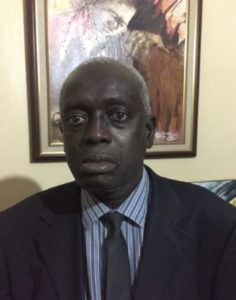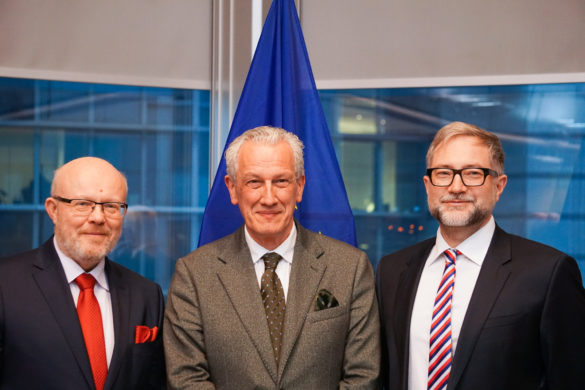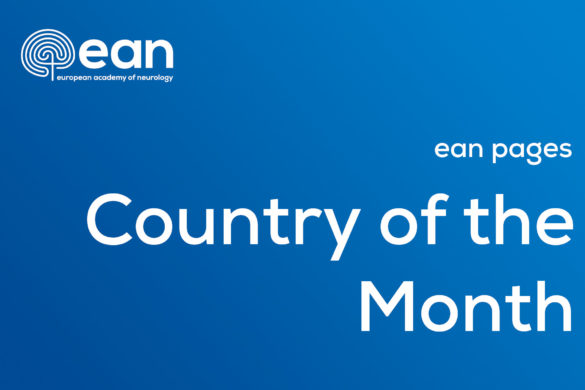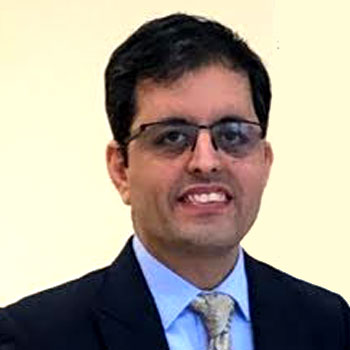
David Vodušek (DV): The AFAN, like the EAN, addresses and covers the neurological interest of a continent. Can you explain to the readers of the EANpages how was the AFAN created and why?
Mansour Ndiaye (MN): Delegates from over 30 countries in Africa representing the interests of their national neurologic societies and associations met in Dakar, Senegal, over the weekend of August 29-30, 2015. The meeting was held under the aegis of the World Federation of Neurology (WFN) Africa Initiative Task and Advisory Force for Africa (TAFNA,) with the support of the President of the WFN, Professor Raad Shakir. The Representatives of TAFNA were Professors Amadou Gallo Diop and Riadh Gouider, from Senegal and Tunisia, respectively. During the meeting it was decided by a majority vote to establish the African Academy of Neurology (AFAN) as the sole representative body of the African region within the WFN, and that it would be an independent not-for-profit, private civil society. The creation of the AFAN was the culmination of many decades of work in trying to unify the continent in the quality of Neurological care available to its population, and the training available to neurologists working within Africa. The AFAN has evolved out of the Pan African Association of Neurological Sciences (PAANS) which has given rise to the Neurosurgical Association, and now the Academy of Neurology on the continent. As stated in the bylaws of the AFAN constitution, “The Mission of AFAN is to represent and unify all African neurologists through their National Neurological Societies, towards optimal neurological education, and up to date knowledge on advances in neurosciences. The aim is directed towards the provision of the highest level of care to neurological patients, as well as to improve public awareness throughout the continent of the importance of prompt and lifelong care for those afflicted by neurological diseases.” “The activities of the AFAN shall be open to all of those who work, teach or perform research in the field of Neurology in Africa, irrespective of gender, race, language, religion, philosophy, political opinions, or nationality.” The emphasis is very strongly on the training of young neurologists.
DV: Considering the AFAN mission statement, we share the same goal: “To promote Neurological Care and Brain Health”. How do you and the AFAN plan to address this goal?
MN: The AFAN aims at achieving its goals by organizing, promoting, and regulating regional training programmes for neurologists, residents, and general practitioners in various aspects of Neurology: “IN Africa FOR Africa”. To date, Africa can boast of three WFN accredited training sites (Egypt, Morocco, and, more recently, Senegal). We hope to continue to develop local training centres able to provide adequate training for young neurologists within the region. Furthermore, we believe in adequate support and exposure of young neurology trainees in collaboration with international organisations such as the WFN, your organisation (the EAN), and the Movement Disorder Society (MDS) to promote an even playing field in the world and for Africans to benefit from the best available knowledge in Neurology. The AFAN shall participate, in conjunction with national societies and international interest groups (International Headache Society, International League Against Epilepsy, World Stroke Organisation, etc.) in organising congresses, conferences, and meetings to facilitate and improve the care afforded to patients with neurologic disease. Research is crucial to the development of Neurology on the continent, and the AFAN is to foster and support neuroscience research.
DV: Education is at the forefront of both our organisations. The EAN, in cooperation with the AFAN, will organise its 8th Regional Teaching Course in Sub-Saharan Africa this year in November. How do you value this initiative in the African context?
MN: The EAN’s Sub-Saharan Regional Training Course initiative is highly valued by the AFAN as it sets off on its maiden journey. We will learn from your experiences, and as time progresses take the driving seat in determining which subjects, formats and modalities best suit the African Neurologist for practice in Africa. Ultimately, the EAN and the AFAN share the same goals in training young neurologists, improving neurological care and brain health, and as long as we share the same goals, we might as well travel the journey together, especially in a world that is continuing to get smaller and more closely interconnected.
DV: The AFAN will organise biennial Pan-African Congresses. Do you see an opportunity here for cooperation with the EAN? How could European neurologists and experts be involved?
MN: The AFAN is glad to use as many opportunities as it can to foster cooperation between the international societies that share the same reverence of neurology, brain health
and the population living with Neurologic disease. The meetings organised with the participation of the AFAN will endeavour to strengthen the ties with other international organisations such as yours in order to utilise the expertise and knowledge of those who have made the journey through the wide expanses of the neurological sciences. We cannot move ahead without the paths paved by others.
DV: What is your personal vision of neurology in Africa ten years from now?
MN: It is my hope that in 10 years neurology in general, and African Neurology in particular, will not be seen any longer as a mystery. For Africans living with, and at risk of neurologic disease, there should be adequate access to qualified care that is at par with that found in other parts of the world. We should strive towards increasing the number of neurologists in the continent and maintaining them in Africa by reversing the brain drain that has hitherto been the blight of our continent. Ultimately, I am very proud of being part of forging a new and much improved era of Neurology on the African Continent.
Prof. Mansour Ndiaye I thank you for this very informative interview. We wish you and the AFAN further success.
David B. Vodušek
Chair, EAN Liaison Committee
For more infromation click here.








